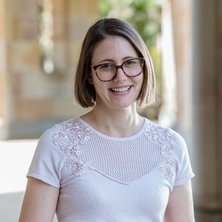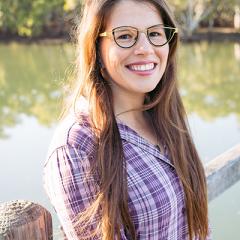We are very proud to announce that a number of talented academics from our CBCS community have recently achieved well-deserved promotions, reflecting their exceptional research and teaching contributions.
This celebration is made even more notable with UQ’s recent recognition as Australia’s top university in the Australian Financial Review’s Best Universities Rankings 2024. These milestones underscore the world-class talent and innovation within our CBCS community.
To highlight these excellent achievements, we spoke with some of our newly promoted academics to learn about their inspiring work, future plans, and the impact they aim to create.
Summary of promotions:
Professor: Justine Bell-James
Associate Professor: Tatsuya Amano, Angela Dean, Matthew Luskin
Senior Lecturer: Simon Hart, Matt Holden
Research Fellow: Alice Twomey

Professor Justine Bell-James
My work broadly focuses on how law can facilitate marine and coastal restoration. A key focus at the moment is working with governments and restoration practitioners to progress solutions to legal barriers, including complex legal permitting frameworks for restoration, and onerous liability requirements for practitioners. I also worked on the first blue carbon method, and I’m really excited to be working with Prof Cath Lovelock and her crew to develop the second blue carbon method for feral ungulate control.
What are you hoping to achieve moving forward?
I am both excited and a bit daunted to have been given the role of pulling together one of UQ’s major Research Networks – the Climate Change Research Network. The purpose of these Networks is to put some infrastructure over areas of research with significant breadth and depth of expertise across the entire institution and facilitate cross-collaboration. The Network has recently been approved and will be operational in 2025 – so look out for the call to join!
How do you feel post-promotion?
Getting to Professor is an extraordinarily long journey, and a difficult one for those of us that are more interested in conservation than self-promotion! A colleague from HASS recently said to me that she felt like she spent years picking up little pebbles of ‘achievement’ and putting them in her pocket, and it was such a relief to finally put them all down. It is a very accurate metaphor! I am also looking forward to having more capacity and scope to mentor and help my colleagues with their progression, and I think we are lucky to have such wonderful models of Professors in CBCS to look to.

Associate Professor Angela Dean
As a social scientist, most of my work focused on how we can work with people more effectively to promote conservation practices and active support for conservation policies and initiatives. A lot of my research focuses on reefs and coastal ecosystems, but I also work on threatened species, wildlife conservation, land management, and habitat restoration.
What are you hoping to achieve moving forward?
Everything! Going for promotion sometimes means we need to focus on ourselves for a while. Passing this milestone means I can put that extra energy into supporting my students and postdocs on their career and promotion journeys. And it feels like this is a good time to start some new challenges – one of these new research areas is about how to enable change not just at the community level, but at the level of environmental organisations. How can we enable organisations (and the people in them) to collaborate more effectively to put good conservation science into practice?
How do you feel post-promotion?
The main feeling with this promotion is relief! About 10 years ago, I changed careers and transitioned from health to conservation. While I always felt it was the right thing for me, given the precarity of academic research opportunities, I was never sure if the career change would ‘work’. Securing this position and getting the promotion feels like a signal that it has worked. Phew.

Associate Professor Tatsuya Amano
I am broadly interested in any conservation-related topics but my recent work has been focusing on (i) consequences of language barriers in evidence-based conservation and more broadly in science, and (ii) the conservation of waterbird species.
What are you hoping to achieve moving forward?
My group/project is growing and I am now keen to expand my research further, e.g. into more broad equity, diversity, and inclusion issues in conservation and in science.
How do you feel post-promotion?
[This promotion] is another great opportunity for me to realise that this is all thanks to amazing group/project members, colleagues, mentors, collaborators from around the world. So I feel grateful.

Senior Lecturer Simon Hart
My lab’s research revolves around three themes: (1) dramatic ecology: focused on identifying and understanding large and rapid changes in the rise and fall of animal and plant populations (2) the effects of rapid evolution on animal and plant populations in response to species interactions and environmental fluctuations and (3) identify threats and solutions for conservation biodiversity in a human-dominated world.
What are you hoping to achieve moving forward?
Does keeping my head above water count? What I care about most right now is working closely with my PhD students to give them the best possible PhD experience.

Senior Lecturer Matt Holden
Dr Matthew Holden is an applied mathematician using modelling to improve environmental outcomes. Mathematical tools unify his research across several diverse topics in biodiversity conservation, theoretical ecology, fisheries, and other branches of natural resource management.
What are you hoping to achieve moving forward?
Dr Holden is especially interested in identifying how we can best improve the well-being of human populations while simultaneously improving biodiversity and environmental sustainability. He is working on several projects on how to achieve this in terrestrial and marine systems.

Research Fellow Alice Twomey
Currently, I’m working on several projects, all centred around a common goal: coastal restoration and conservation. These include optimising hydrological restoration in mangroves in Far North Queensland, conceptually modelling salt flat ecosystems in the Exmouth Gulf, Western Australia, and using adaptive pathways to identify time-sensitive thresholds for initiating blue carbon projects.
What are you hoping to achieve moving forward?
I want to build on the skills I've developed, using them in new and innovative ways to grow as a researcher. My goal is to move beyond the problem-solving approaches I’ve relied on in the past and explore deeper, more creative solutions that advance coastal restoration.
How do you feel post-promotion?
This is a significant milestone in building my confidence as I work towards becoming an independent researcher. Being promoted provides evidence that I've made substantial progress as a scientist since completing my PhD.
To keep up to date on our latest events, check out our Bluesky and LinkedIn.
Photo credit for banner: Alvise Dabalà

